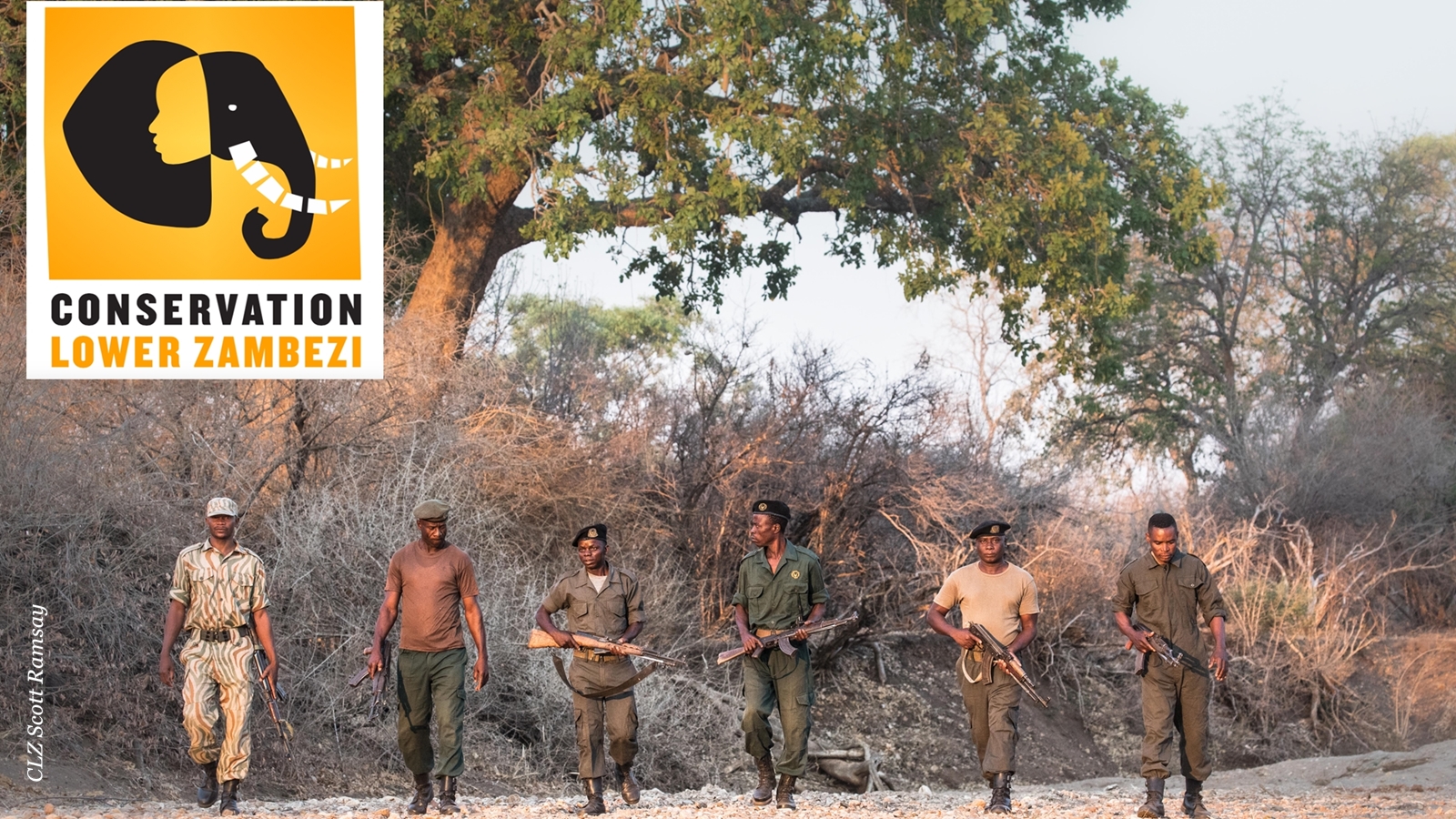Project: Community Scout Patrols
2020 fund-raising target: $9,100 US
2020 donation: $15,525
More info: conservationlowerzambezi.org
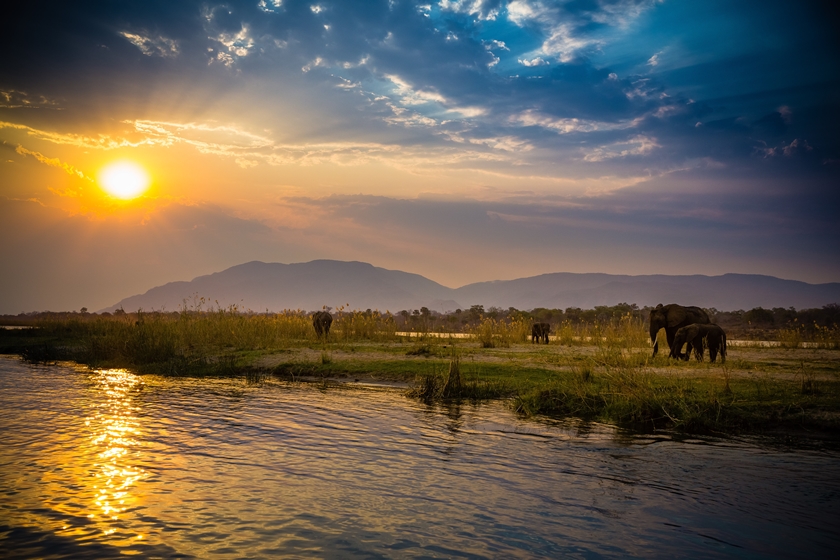
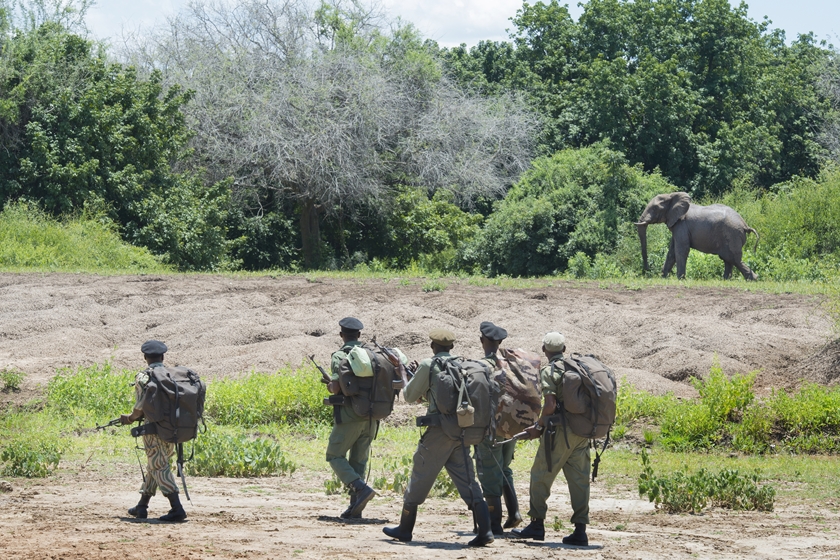
The Lower Zambezi National Park (LZNP) is Zambia’s youngest national park, receiving protected status in 1983. It sits opposite Zimbabwe’s famous Mana Pools, on the north bank of the Zambezi River in the south-eastern corner of the country and is a stronghold for elephants.
During the 80s and early 90s poaching decimated the wildlife in this area and the Department for National Parks and Wildlife (DNPW) struggled to cope with the onslaught. In 1994 Conservation Lower Zambezi was established, a non-profit organisation committed to the protection of wildlife and to the sustainable use of natural resources in this region. CLZ support DNPW activities and together, by 2013, they had successfully reduced elephant poaching in the LZNP to the lowest level on record.
Due to the remote location of the Lower Zambezi, Covid-19 has not greatly affected the area in terms of people’s health, however, the global pandemic has had a significant impact on the livelihoods of local people, with potential repercussions for wildlife.
Sustainable wildlife tourism plays a vital role here, by providing jobs particularly to people from low-income local communities. Many lodges and tourism operators have been forced to close down or operate at minimum capacity due to the collapse of eco-tourism. Without support, many people have no means to provide for themselves and their families and it is feared that some may be forced to turn to poaching for subsistence.
In an effort to support the work of Conservation Lower Zambezi and the local community during this challenging time, Explorers Against Extinction has pledged to fund 10 CLZ community scout wildlife patrols at a cost of $9,100 US dollars.
This has a double benefit – it provides local people with employment, and also helps to protect the wildlife.
December 2020 update: due to a successful Sketch for Survival campaign we are delighted to announce that we exceeded our target and donated $15,500 USD to CLZ to fund 17 community scout wildlife patrols.
Image credit: CLZ. Francois D’elbee
Conservation Lower Zambezi – Conserving the Lower Zambezi for tomorrow through wildlife protection, environmental education and community engagement
Conservation Lower Zambezi (CLZ) is a Non-Governmental Organisation established in 1994 with a vision to protect the Lower Zambezi landscape. CLZ works with the local wildlife authority, The Department of National Parks and Wildlife (DNPW) in order to help them fulfil their mandate of conserving the wildlife of the Lower Zambezi.
CLZ supports over 11,000 patrol-man days a year. These patrols, conducted with DNPW, are focused on two core areas: the Lower Zambezi National Park (4,092km2) and the Chiawa Game Management Area (2,344km2). They also have an increased presence in the Rufunsa Game Management Area (3,179km2).
An abundance of wildlife inhabits this valley with a stronghold population of elephants along with other key species such as wild dog, lion, leopard and not forgetting the elusive pangolin.
In addition over 30,000 people live in communities bordering the Lower Zambezi National Park – helping people and wildlife to co-exist as harmoniously as possible is a key focus for CLZ. CLZ assist in Human-Wildlife Conflict (HWC), an issue that is prevalent within the communities and causes strife between locals and the wildlife that surrounds them. Annually, HWC patrols are conducted during peak harvesting seasons to ward wildlife off crops. CLZ also conducts chilli farming and elephant behaviour workshops as well as helping to build elephant-safe granary stores and constructing hippo and elephant fences to further protect fields. These are all efforts to support the communities and ensure the reduction of incidents, accidents or fatalities due to wildlife.
Community Scout Wildlife Patrols
Community Scout patrols were set up by CLZ in 2013. Scouts employed by CLZ accompany Wildlife Police Officers employed by DNPW to patrol the park, particularly focusing on hotspot areas prone to wildlife crime. Elephants are targeted for their ivory; pangolin for their scales and snares are set for bush meat along with other illegal activity. Hotspots are identified based on intelligence generated through collaboration with DNPW and through extensive data records from CLZ’s 24 hour control centre.
CLZ have a technologically advanced monitoring and evaluation system (that is continually improving) which allows real-time tracking of all teams in the field. All deployments are equipped with navigational, solar and data recording equipment in order to streamline data collection and track successes in the field over the years.
US$910 funds a five-man, ten-day patrol.
With your support, we want to fund 100 days of wildlife patrols in the Lower Zambezi.
This vital funding ensures that the patrols can continue to operate and that they are properly equipped as follows, with:
- Food rations, water drums, first aid kits;
- Deployment transportation;
- VHF radio handset, batteries, solar charging equipment and 24/7 communications with CLZ’s control room;
- GPS devices (geographical coverage of patrols is recorded and managed by CLZ with GPS data downloaded and analysed in a Geographical Information System (GIS)). Locations of illegal activities are plotted onto the GIS to better manage the direction of patrols;
- Briefing before patrols and de-briefing after patrols for data and information collection and management;
- Support from CLZ’s aerial patrols;
- Emergency rapid response assistance.
Detailed reports of poaching and anti-poaching activities and results are maintained and analysed by CLZ.
Image credit: CLZ. Francois D’elbee & Nikita Iyengar
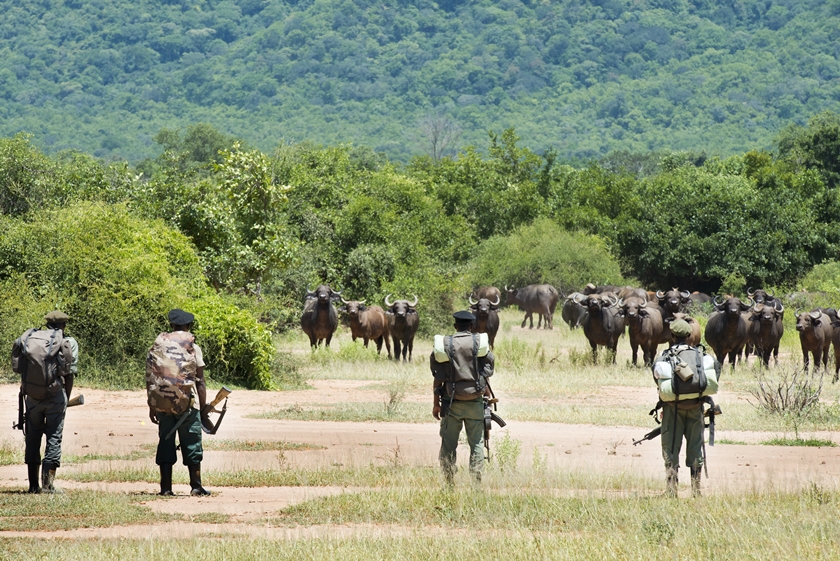
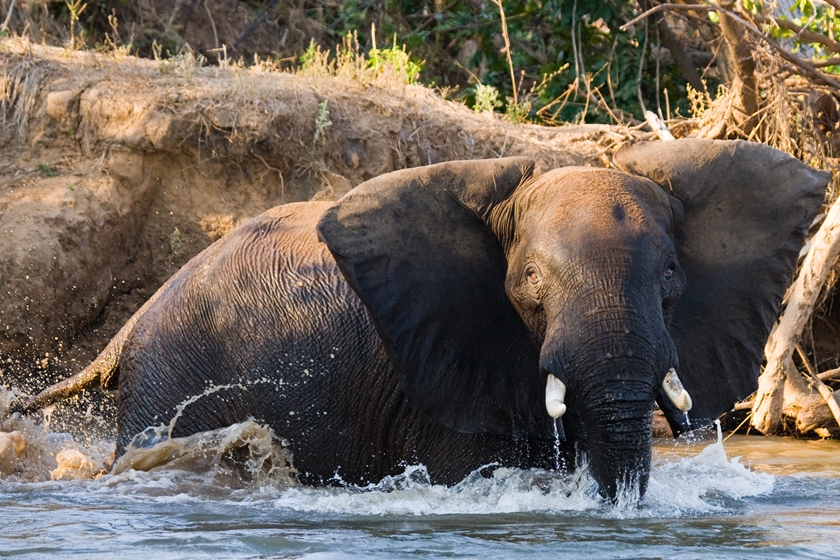
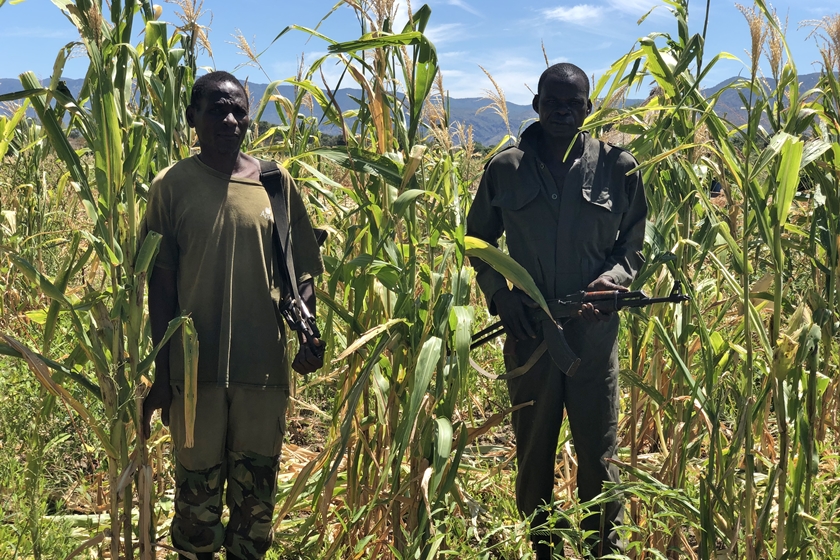
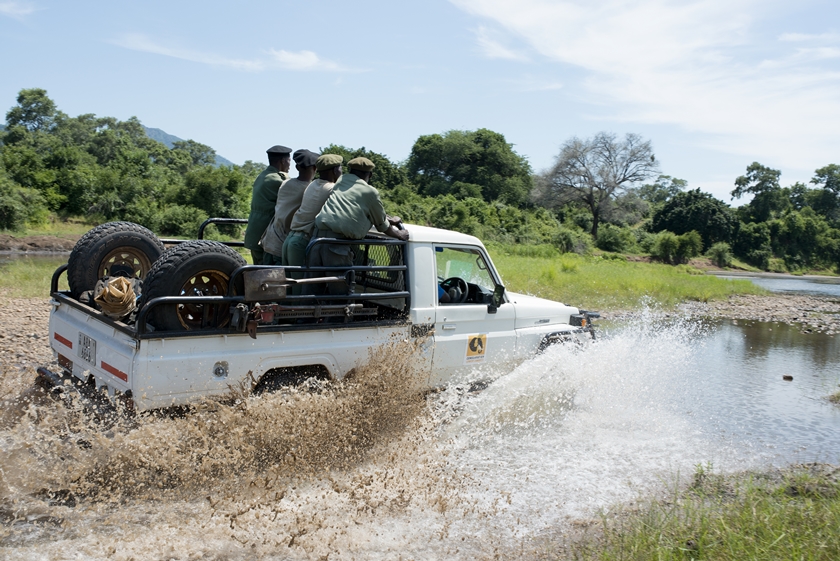
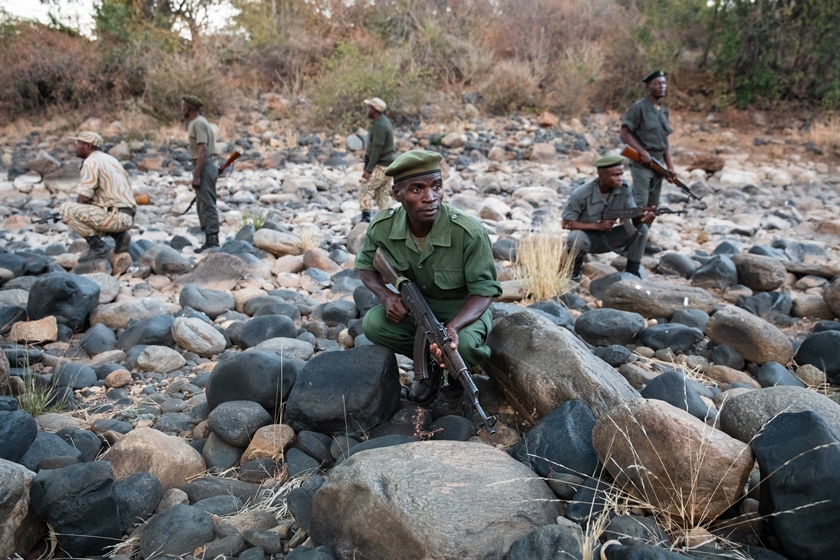
CLZ employs 66 local Zambian people. Of these 29 are Community Scouts in the Community Scout Programme (26 men and 3 women). It is estimated that for each person employed, five people, on average, benefit so you can immediately see the importance of maintaining the Community Scout programme.
Community Scouts over the years have been responsible for the apprehension of poachers and the confiscation of illegal items such as firearms, ammunition, ivory, rhino horn, live pangolins (which were released back into the park), bushmeat, as well as spotting elephant carcasses, snares and poachers camps. They are an invaluable contributor to CLZ’s overall law enforcement efforts and we would like to ensure they stay motivated and positive during this difficult time.
Image credit: CLZ. Felix Schadeck.


